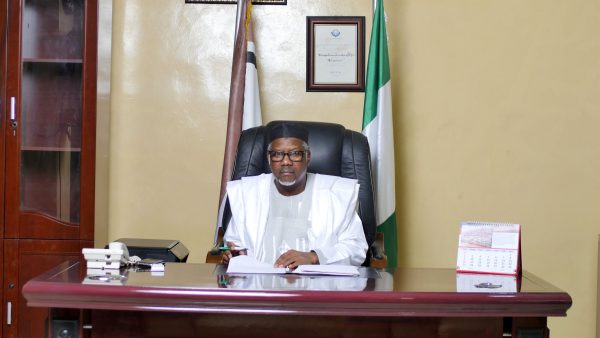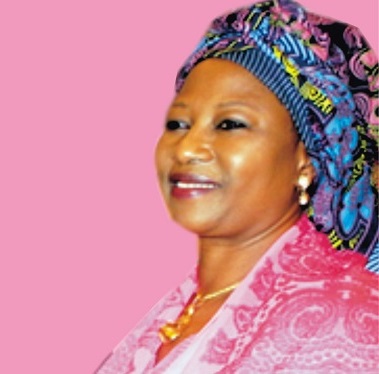Nigerian Land Borders Only Contribute 2% Customs Revenue – Ayalogu

By Kenneth Jukpor
The Deputy Controller (DC) Tariff and Trade, Customs Headquarters, Ayalogu Anthony has an exclusive chat with MMS Plus newspaper recently at the night of engagement on ease of doing business organized by the Presidential Enabling Business Environment Council (PEBEC) and Lagos State Government. He addressed several issues pertaining to Customs processes, stressing the agency’s crucial role in trade facilitation. Excerpts:
What role has the Nigeria Customs Service (NCS) played as part of efforts to ease business operations at the ports?
The issue of Ease of Doing Business is one of the core functions of Customs at the level of the World Customs Organization (WCO). At WCO it is called ‘trade facilitation’. The government also came up with a national agenda which is Ease of Doing business and Customs has made a lot of reforms since the inception of this initiative. We started by reducing the number of documents required for import and export. We reduced the documentation from 14 to 8 for imports and from 11 to 7 for the exports. Presently, we have been able to achieve zero for the import and six for the export.
We were able to achieve this as a result of the introduction of the Nigerian Integrated Customs Information System (NICIS) II, an internet-based network that replaced the intra-net based network that we used to have before. The old system, which was based on ASYCUDA, was not deemed robust enough in terms of availability and security features. NICIS II has resulted in speed and efficiency.
We decided to introduce NICIS II which has seen Customs work efficiently irrespective of their location in the office or any other location. We have seen the speed of processes in Customs operations since the inception of PEBEC. I have been opportuned to present this to the World Bank in Washington D.C.
While this development is commendable, the Customs is also evolving with e-Customs. We intend to incorporate e-commerce into our processes. This would mean that at a certain stage, importers and other agents can make declaration, make assessment of tariffs and charges at the comfort of their homes, just like we have in the banking sector.
We want to eliminate the chances of human contact in the process of payment of duties for vehicles. This is the second largest revenue aspect of Customs at the moment and we have to automate it. We are currently working on this and it would be one of the first items that would go paperless and digital. No Customs officer would be able to made unnecessary claims because the importer or agent only has to put in the right Vehicle Identification Number (VIN) and the details of the vehicle and appropriate duty would pop up. Therefore, one can complete the process from his or her house as the payment can be made online and the receipt printed out. This is the direction we are going now and we have to thank PEBEC for giving us the push we needed.
Recall that when they told us to reduce the number of documentation processes, we went further to eliminate all of them. This shows that Customs is willing and ready to do more. After attending should strategic forums like what we had here in Lagos State, we are thrilled at the level of automation, innovation and diligence with which businesses are managed. We want to emulate them and surpass them.
The seaports everywhere in the world are known as Customs ports as Customs is the lead agency, however there is also the need for inter-agency collaboration. With regards to ease of doing business at the seaports, some of the challenges arise as a result of this rift, how can Customs play a lead role in correcting this anomaly?
Nigerian Customs was the first to develop a Single Window to integrate all agencies at the ports. That window is available and operational because we have a viable network and provision to connect to other agencies.
However, when you hear complaints by some agencies or port users about Customs and some other agencies not being on the same page it is because most of these agencies haven’t developed their system to be able to connect to ours. We are working together with the National Agency for Food, Drug Administration and Control (NAFDAC), Standards Organisation of Nigeria (SON), Federal Inland Revenue Service (FIRS), among others online. So those who have a system they can connect to us but for those who don’t, it would be difficult for use to connect to their papers.
We urge all those agencies that work with us that aren’t digital to go digital because that is the only way they can connect to Customs.
A lot of people including Customs officers still have the notion that Customs Service is only about revenue collection and seizures, but today you have stressed Customs role in ensuring ease of doing business. To that extent, what word of advice do you have for Nigerians, especially those officers who are yet to appreciate the importance of facilitating trade whilst generating revenue for the government?
Revenue generation for the government isn’t the main function of Customs. Customs is about collation, control before collection. There are three ‘Cs’. The first one is to collate data and be accurate and accountable. The next one is to be able to control it by ensuring that the goods and services conform to the nation’s standards as stipulated by other agencies. The last function is collection of revenue.
There is a Key Performance Indicator (KPI) for development of a country and it states that higher customs revenue for a nation indicates that the nation isn’t growing. The indices of calculating a country that is developing is that its customs revenue should start dwindling. This means that instead of importing finished products that would attract duty of 20%, the nation is bringing in mostly raw materials because the industry has capacity to produce. So, more duties come in at 5% because they are raw materials and this means Customs revenue would be low.
When Nigeria starts bringing in vehicles and all electronics as Completely Knocked Down (CKD) units with about 5% instead of Fully Built Unit (FBU) attract duty of over 35%, you would observe a massive drop in Customs revenue but this doesn’t mean that the nation has failed. We may have lost income via Customs revenue but the nation would have gained tremendously in terms of growing the economy.
Following the impromptu closure of the nation’s land borders by the Federal Government several genuine importers, exporters and manufacturers have been subjected to fiscal loses, as the reform champion of NCS what’s your perspective on this lingering issue?
The border closure is a presidential order and not Customs order. However, we have looked at the situation even as we studied the various modes of import and export for Nigeria. These modes include the land, seas and the air; however the trade across land borders poses the highest risk as the level of compliance is the lowest. The level of compliance at the sea and the air are higher.
The land borders in Nigeria constitute only about 2% of the entire Customs revenue collection while the air and the sea are responsible for 98%. This explains why it is hard to find the effects of the land border closure on the revenue generation of the Customs. We have observed that there was no significant impact. Actually, the revenue increased as people who were coming in through the land borders had to go through the seas and they paid more because there are better controls and compliance levels at the seaports and airport.
What we should do when the government decides to open the land borders is to ensure that we have the arsenal to deploy to the land borders and ensure that revenue collectible are actually collected.







